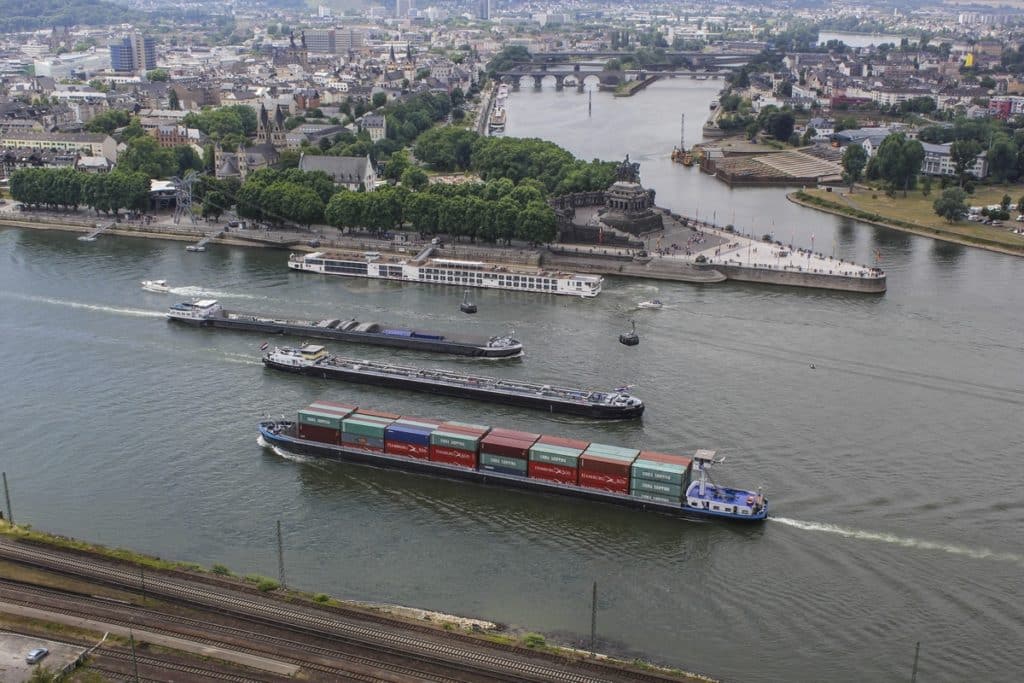Rivers across Europe are evaporating amid a historic drought that has brought the continent to its knees. The Rhine, Europe’s largest and most important river, is set to become impassable at a key juncture later this week, halting the transport of grains, coal, and other goods with catastrophic economic consequences.
—
River Rhine, Germany’s main economic artery and Europe’s most important river, is disappearing amid a drought that is on the right path to becoming the worst the continent has experienced in 500 years.
Impressive images show that the 1,232km-long river, along with many other major waterways in Europe, has hit critically low water levels. This week, experts warned that within the next days, the Rhine river could become virtually impassable at Kaub, a town west of Frankfurt and roughly mid-way along the river between Koblenz and Mainz.
The water level here is forecast to drop to a critical depth of 40 centimetres (just under 16 inches) on Friday and further shrink over the weekend. At this level, most large ships transporting goods, including coal to diesel, are effectively unable to transit.
Christian Lorenz, a spokesman for the German logistics company HGK, explained that, due to the lack of water, ships bringing salt down the Rhine River from Heilbronn to Cologne are only able to transport about 600 tons, significantly less than the 2,200 metric tons of cargo these ships usually carry.
The historic water shortage is posing a major headache for German industries and power plants that rely on the river for shipping their goods across the continent. Experts fear that it could have catastrophic repercussions on Europe’s economy, already compromised by the energy crisis brought about by the conflict in Ukraine.
You might also like: The European Energy Crisis: How Are Countries Handling the Gas Shortage?
But the Rhine isn’t the only river affected by this summer’s drought. Elsewhere across Europe, river-based commerce and agriculture are at stake. In France, the heatwave pushed up water temperatures of the Rhône and Garonne rivers, on which nuclear power stations rely to cool plants, forcing the country’s energy supplier EDF to temporarily reduce their energy output.
Meanwhile, Italy’s longest river has reached historic lows, threatening the local agriculture and hydroelectric supplies. The vast valley around it – called the Po Basin or Po Valley (Italian Pianura Padana) – is Italy’s main industrial and agricultural area, home to nearly one-third of the total population. Here, the moist and extremely fertile floodplain is reserved for cereal crops such as wheat, barley, and rice, a crop that requires heavy irrigation. Hydroelectric stations supply most electricity to surrounding urban areas. Similar to France, the Po’s water is also used as a coolant in coal and oil power stations.
You might also like: Longest River in Italy Is Drying Up, Threatening Local Agriculture and Hydroelectric Supplies


















